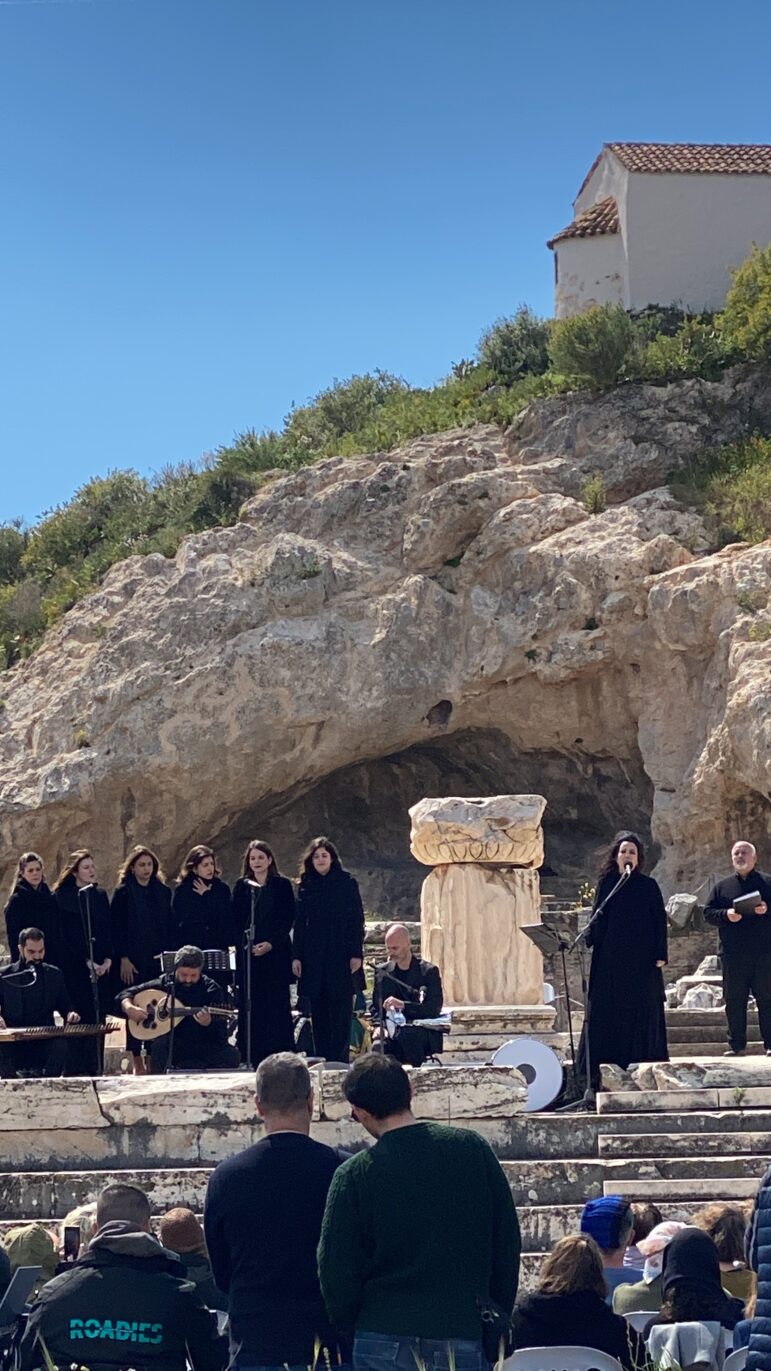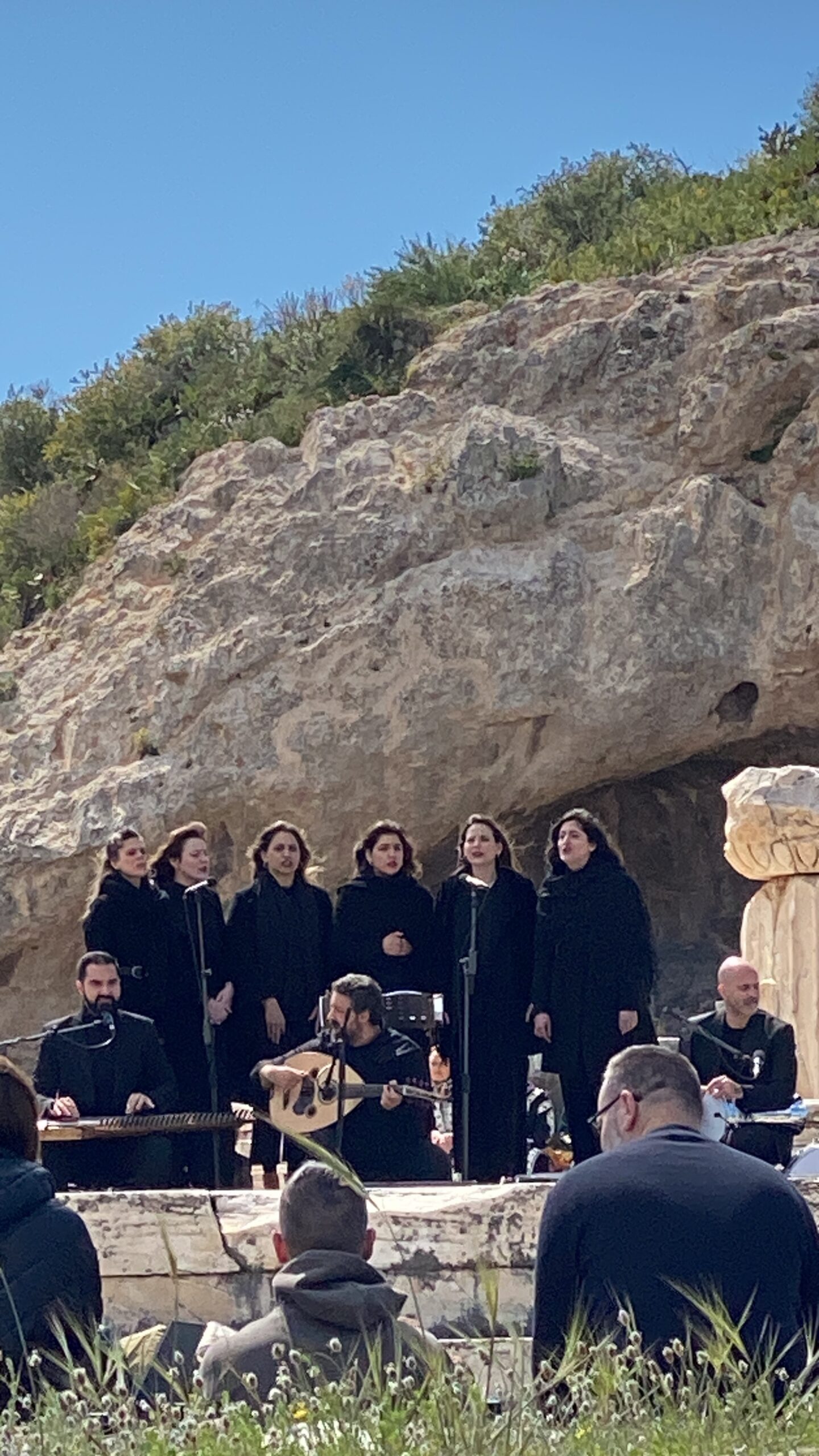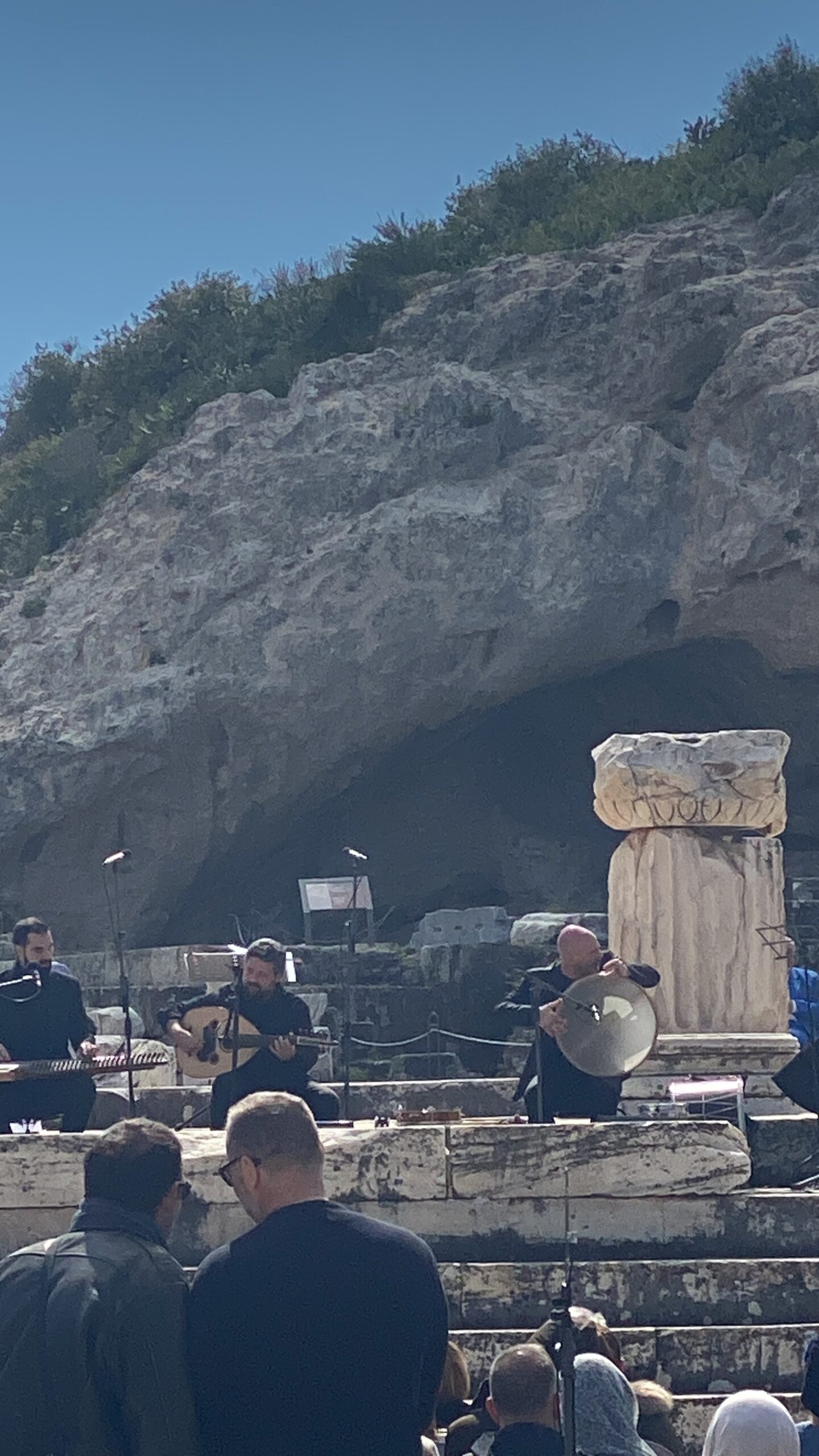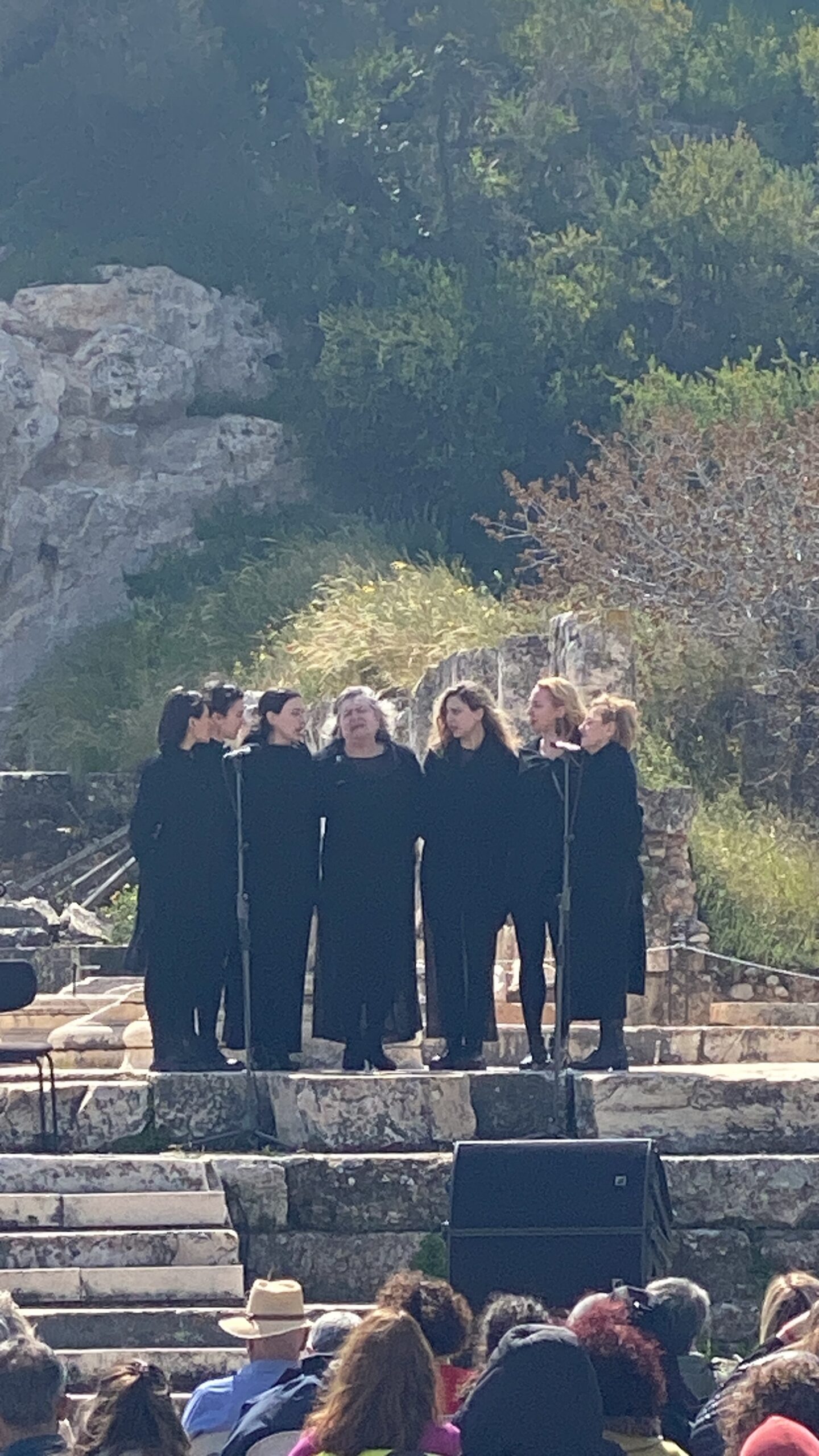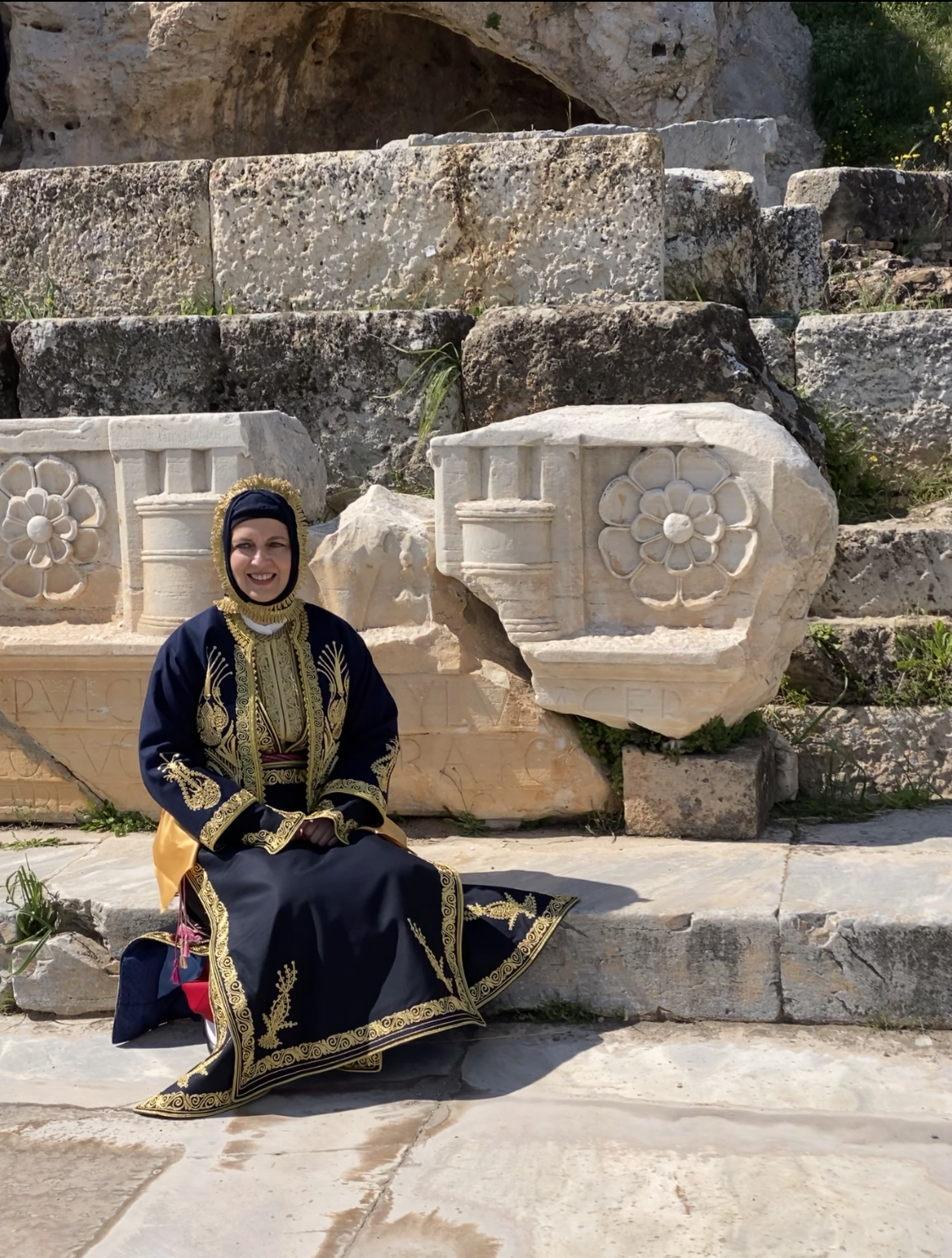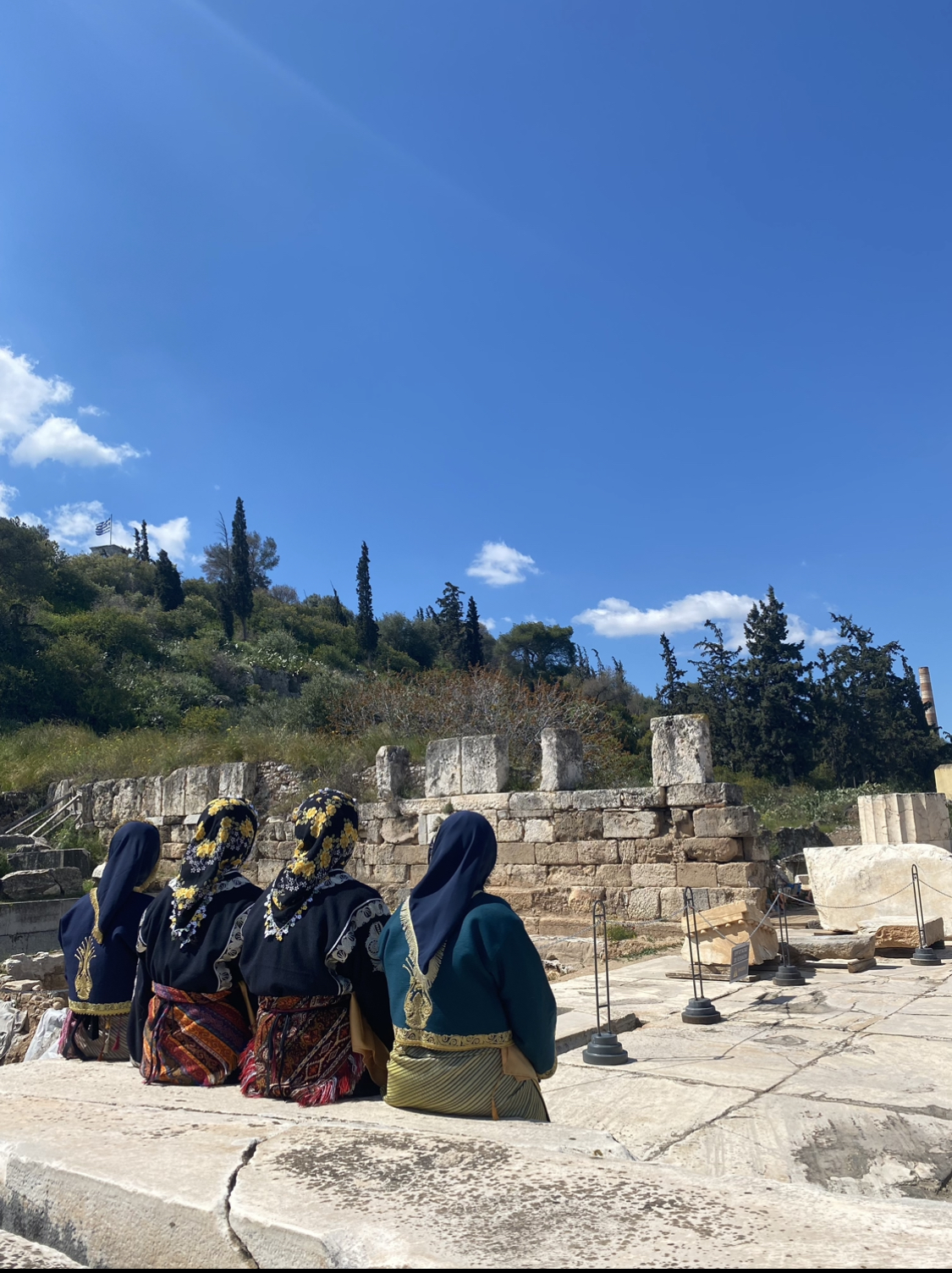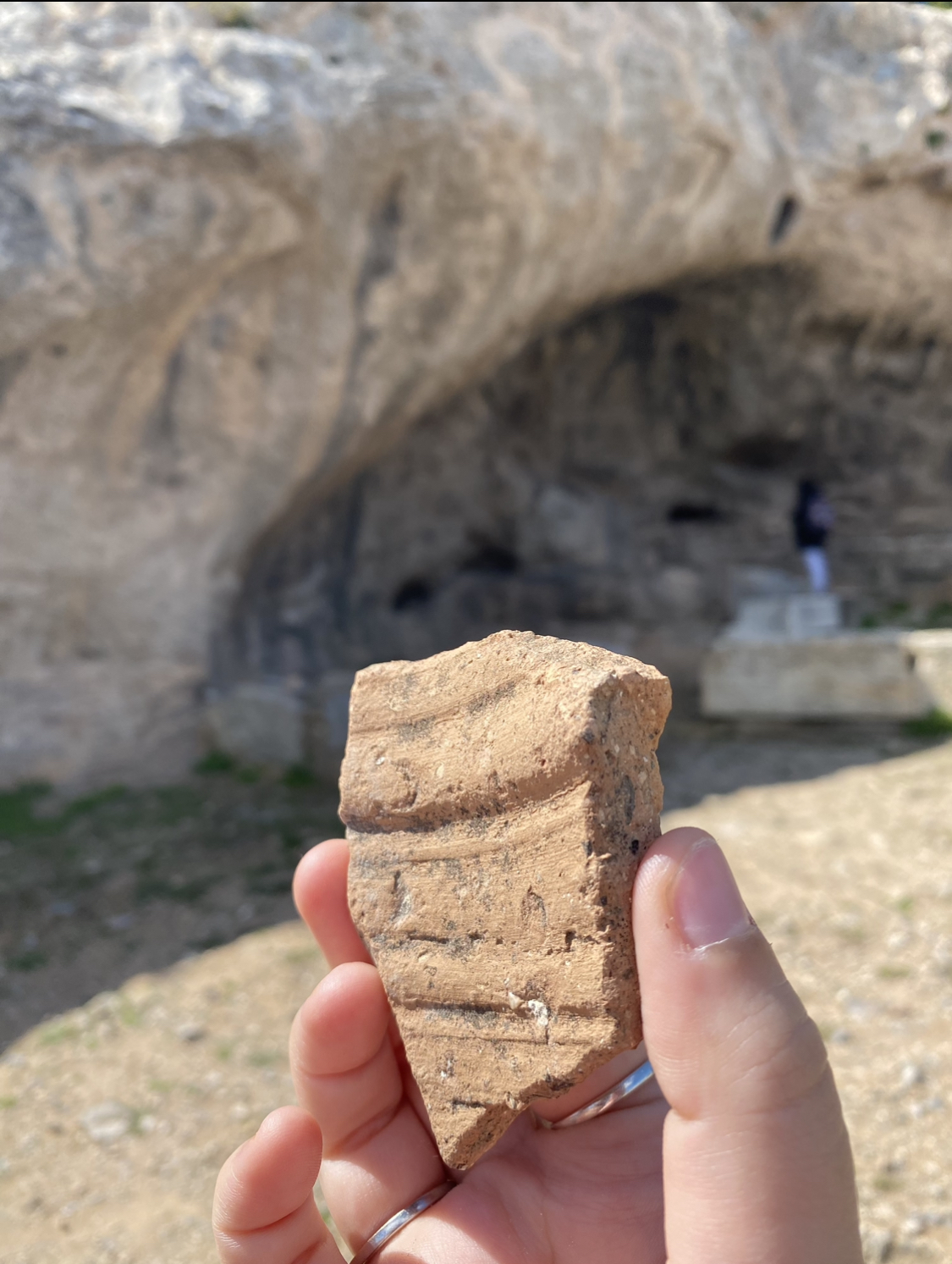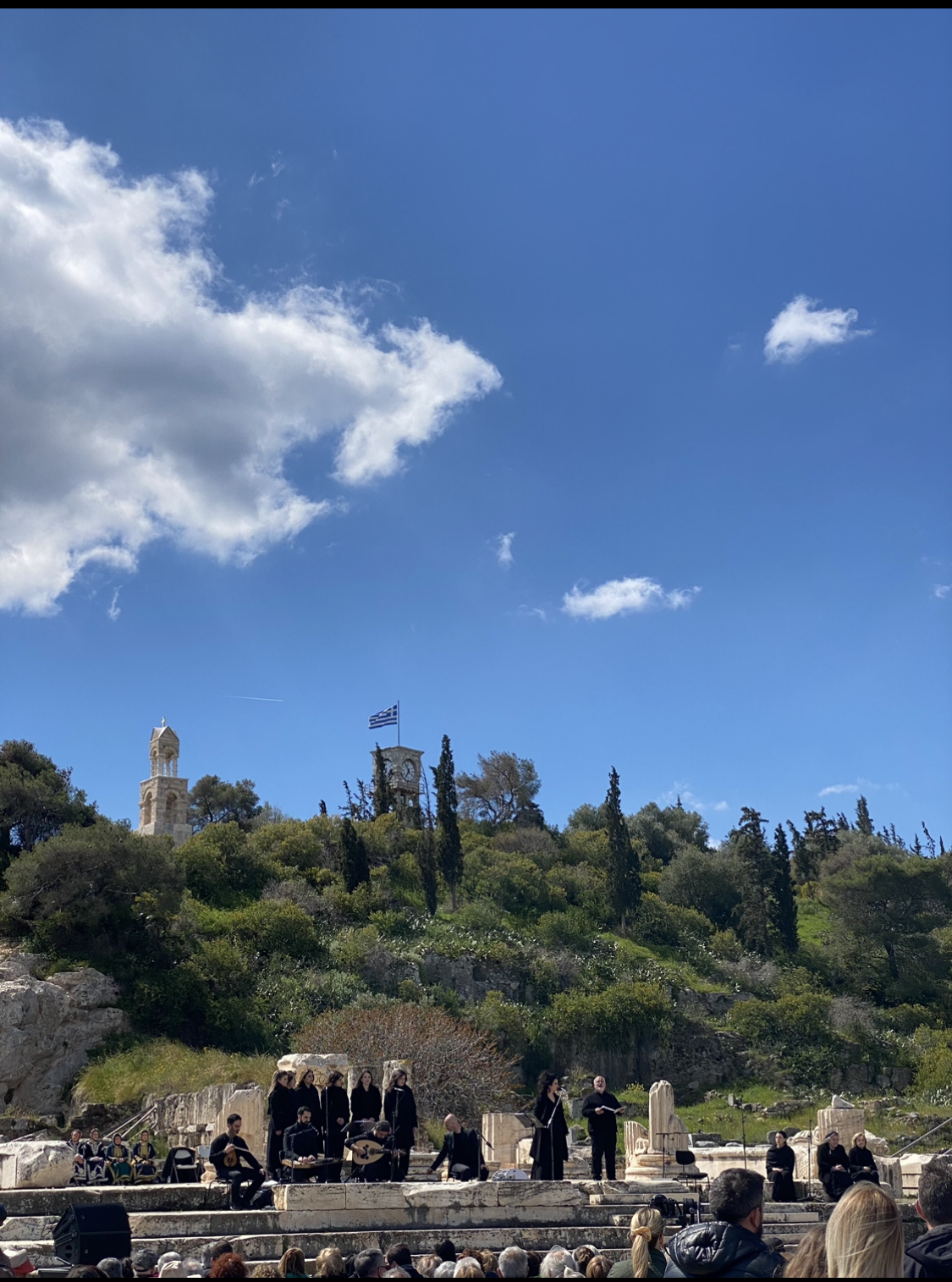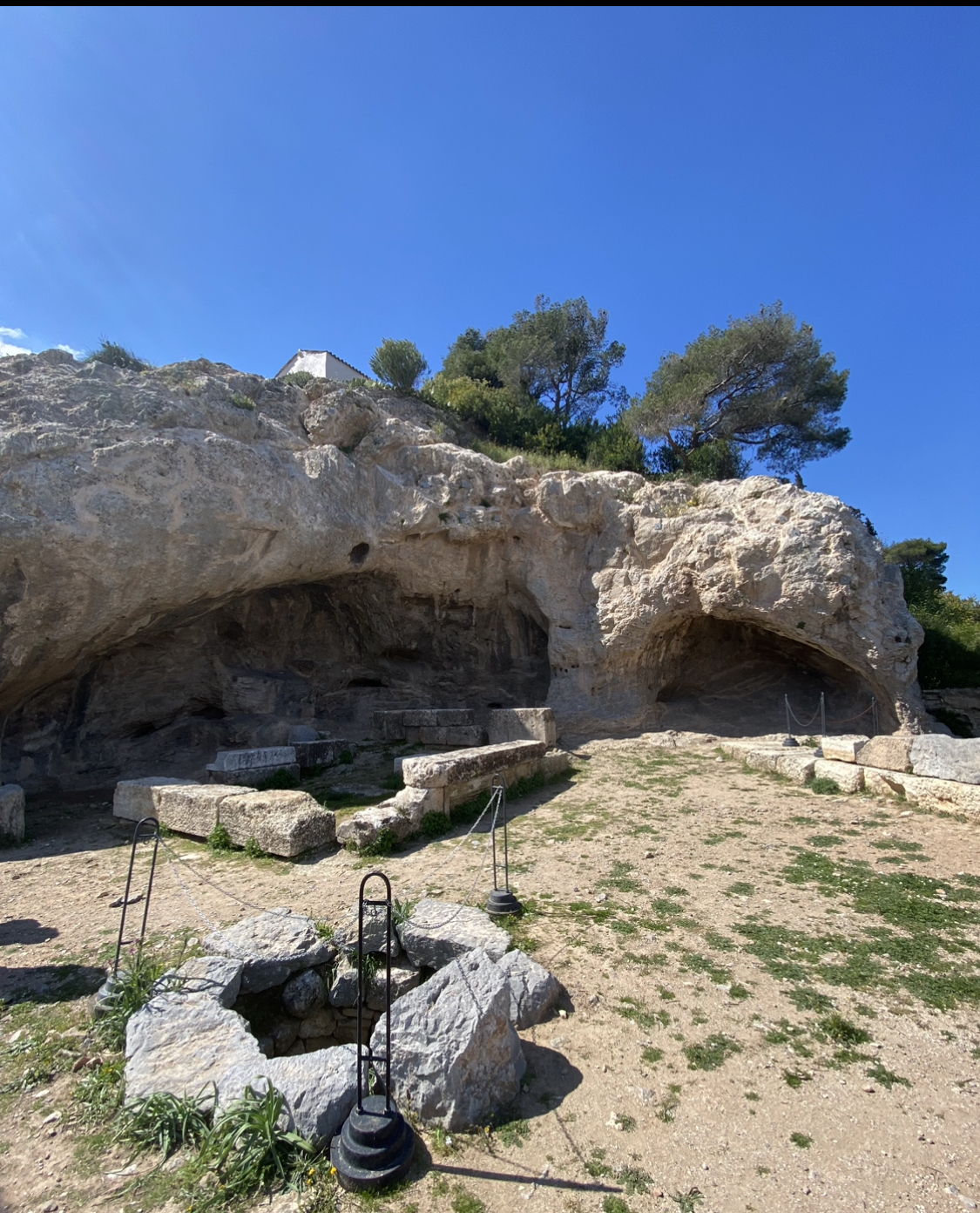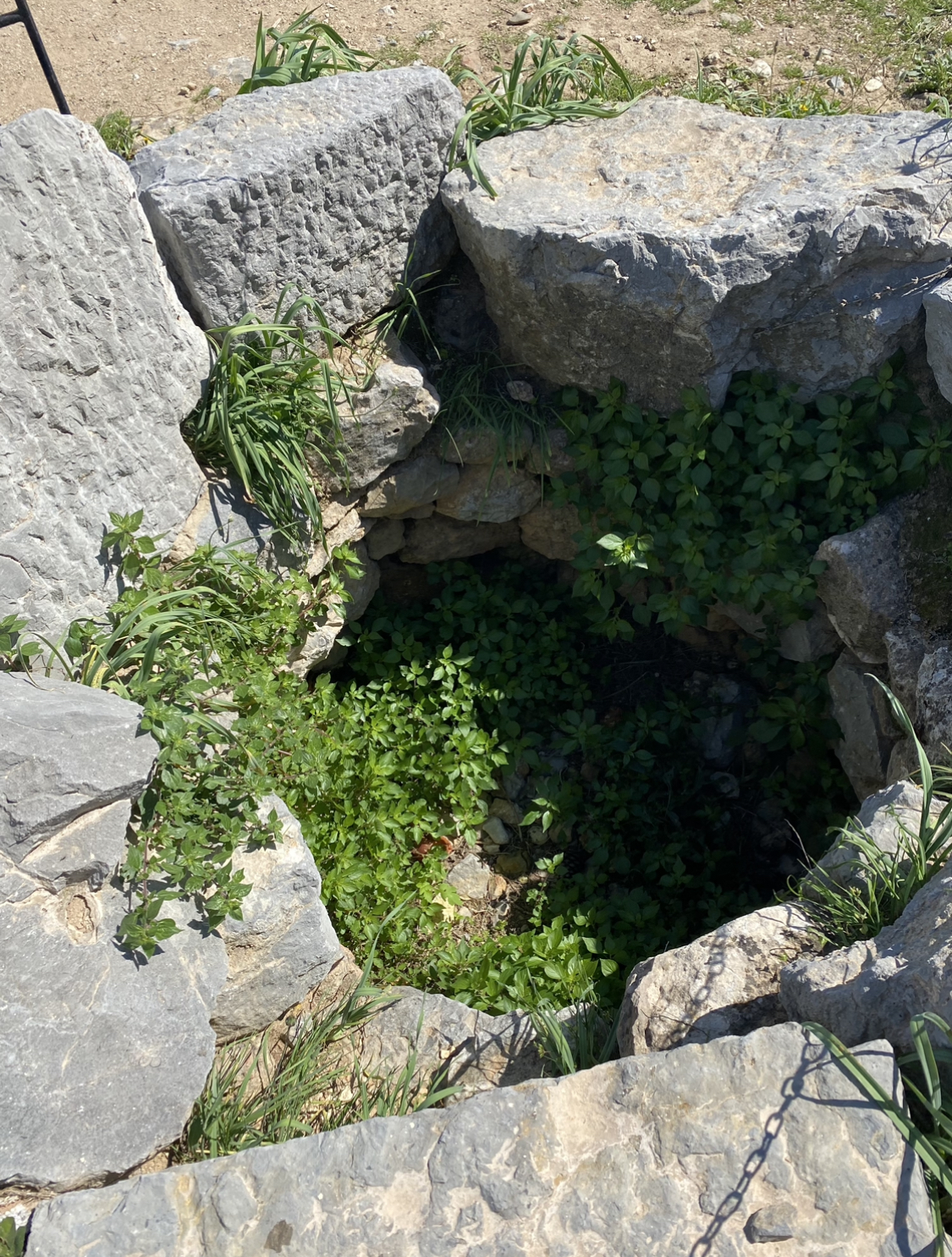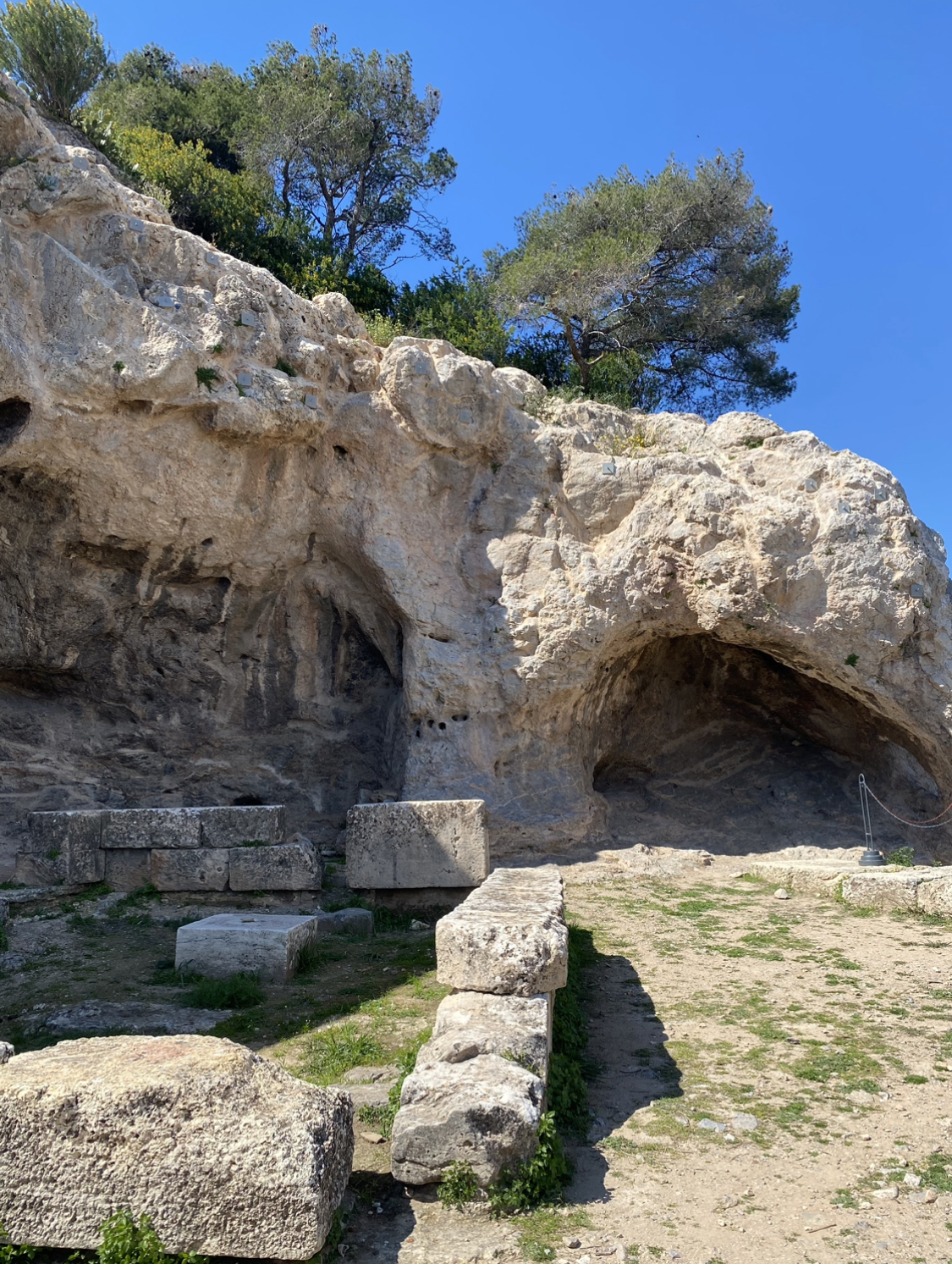ELEUSIS, GREECE – Ancient Greek lyres, handheld Cretan lyras, drums, and a clarinet player sit in a line on the steps to the Temple of Demeter. Seven women flank the musicians on both sides, dressed all in black, draped in long shawls and floor-length dresses that billow ethereally in the wind as four more wait behind, in traditional dress from Epirus. The Temple’s columns, broken but beautiful, and the cave of Persephone serve as the backdrop for performances of lamentation: dancers and singers merge to tell stories of mortality.
Cathartic songs from ancient Greece heralded the Spring Equinox this past weekend in Eleusis, Greece, at the ancient site of Eleusis. Though completely destroyed by Christians in 395 CE, the site includes the remains of the temples of Demeter, Persephone, and Hecate.
In ancient times this was the site of ultimate pilgrimage for many Greeks and Romans, where the tale of Persephone’s descent into the underworld was commemorated at the Great Mysteries each autumn equinox, and her return each spring was celebrated in the Lesser Mysteries in the spring.
Plato, Marcus Aurelius, Emperor Hadrian and his lover-turned-deity Antinous, Augustus Caesar, and other famous figures of history were all initiated into the Mysteries here in Eleusis. The exact nature of celebrations is not known, as they were, as the name implies, closed mysteries. In ancient times, the temple grounds were surrounded by hostels and campgrounds for pilgrims to sleep in, as the Mysteries were thought to last several days leading up to and following the equinox in the time of Anthesterion, “the month of flowers.”
The temples face east, to view the rise of the sun. The first and largest temple is the Temple to Demeter and Kore, an epithet of Persephone, meaning “daughter,” sometimes translated as “maiden.” Behind the main temple is a temple to Hecate, Persephone’s escort to and from the underworld. Hecate’s temple guards the cave from which Persephone travels, and a well thought to connect to the underworld is still visible, despite the temple’s considerable damage. Offerings of flowers and pomegranates were left at the cave’s mouth. Pomegranates are sacred to Persephone as a symbol of life and death. In some versions of her tale, she was trapped in her marriage to Plouton (Hades) when she first descended to the underworld because she ate three seeds of the fruit.
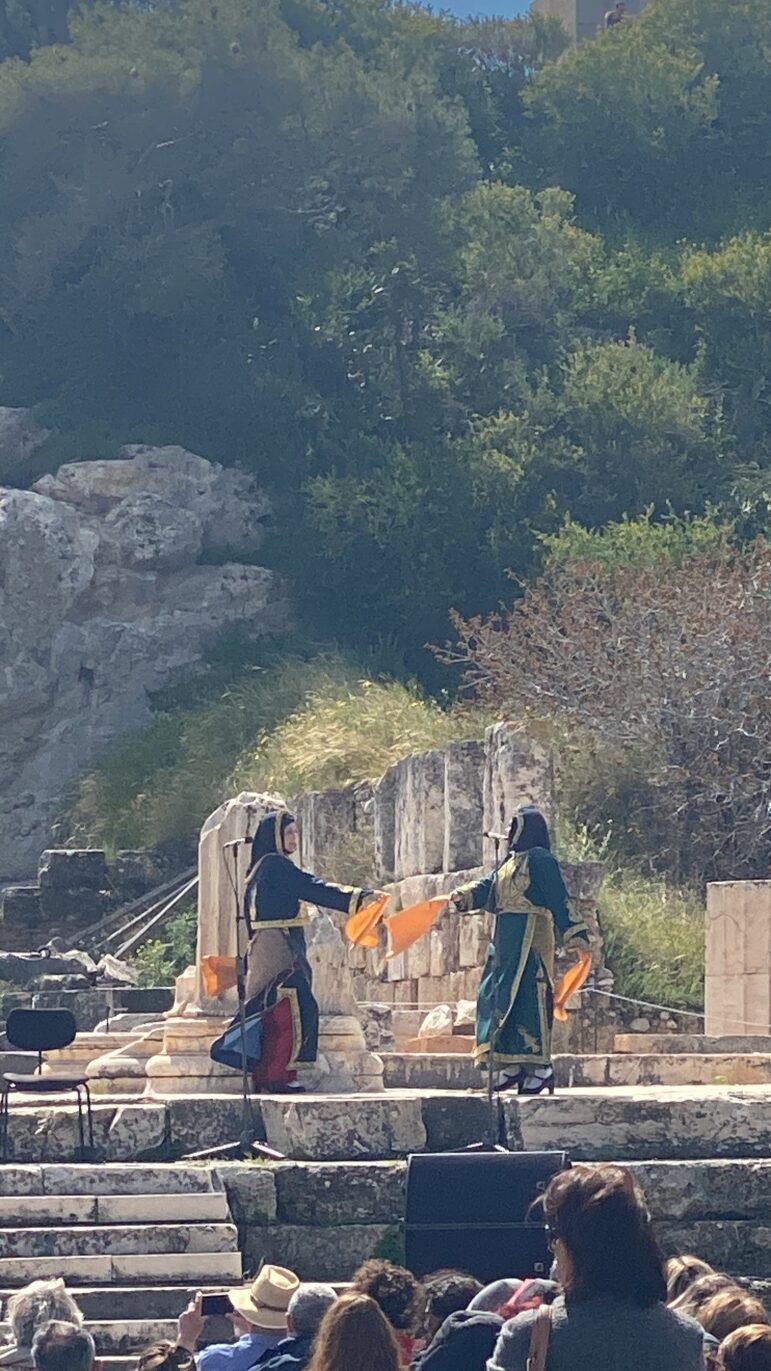
Image credit: E. Welles
A Greek orthodox church overlooks the ancient temples from the top of the mountain behind the site. At ancient sites throughout Greece and Italy, temples were often destroyed and the pieces used to make a church onsite; this is the case in Eleusis, where a tower made of temple marble is visible from each part of the site: a reminder of Christian dominion, seeking to erase pagan practices and memories. But things are shifting in Eleusis, as evidenced by Sunday’s moving performance.
Elefsina, the town in which the temple can be found, was chosen this year as one of three of Europe’s Capitals of Culture, along with Timisoara in Romania, and Veszprém in Hungary.
This performance was curated by Lambros Liavas, and directed by Grigoris Filidis, to “bring together rituals of lamentation through song.” The dances hail from Cappadocia in modern-day Turkey, and the music from the Epirus region of Greece. The theme of the performance was “The Great Mother Goddess,” in honor of Demeter’s associations with fertility and the cycle of the seasons.
The three sacred products of Greece – wine, olive oil, and wheat – are combined with the “traditional triad of ‘speech-music-dance,” to evince the core of human experience: the “Cycle of Life” and the “Cycle of Time.” In this theme, the songs were lamentations for lost loved ones, and tales of birth, marriage, and death. Between each piece, a reader told of the women characters in each song and the suffering they went through, increasing the effect of the song’s emotions.
Catharsis is often attributed as the greatest purpose for the Mystery cults, and likewise for this performance. After the last song ended, a woman from the audience rose and tearfully explained to all present that she was from Epirus, and had never heard these songs performed with such raw and real emotion. Many others quietly nodded in assent, equally moved to tears.
The organizers made it clear that this performance is meant to embrace the shared cultures across the Balkans, in lands that were once ancient Greece, and beyond, for all humanity to share in the acceptance of death and experience of grief through music. This was achieved, as the diverse audience could attest. More than one hundred people came to watch this performance from all over the world: amongst the attendees were people from the United States, France, Britain, Spain, Germany, and all throughout Greece.
Performances, lectures, workshops, and other activities will continue throughout the year in Elefsina, including multiple museums and art exhibitions. Many activities are free of charge. More information is available on the 2023 Eleusis – European Capital of Culture website.
The Wild Hunt is not responsible for links to external content.
To join a conversation on this post:
Visit our The Wild Hunt subreddit! Point your favorite browser to https://www.reddit.com/r/The_Wild_Hunt_News/, then click “JOIN”. Make sure to click the bell, too, to be notified of new articles posted to our subreddit.
